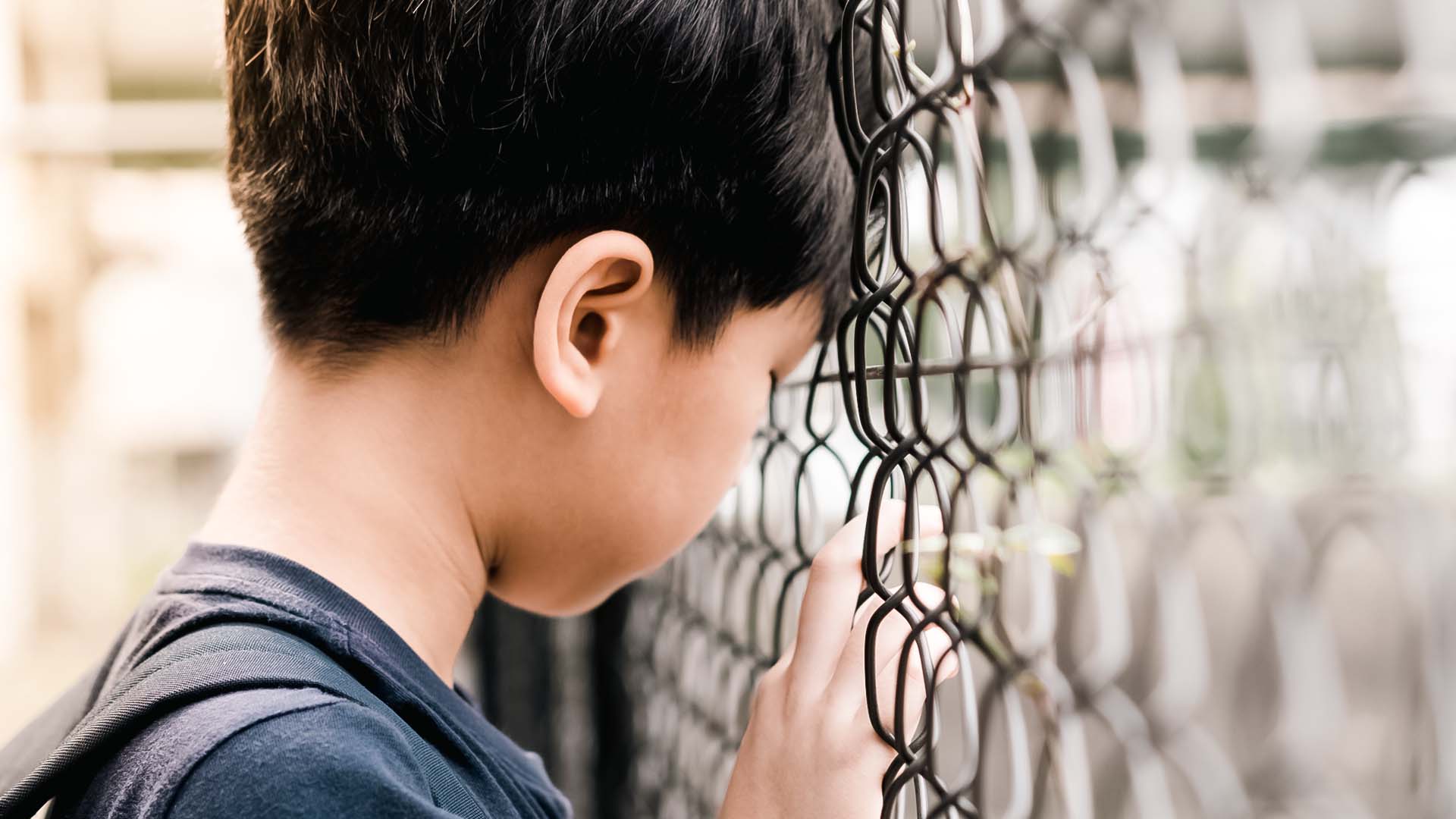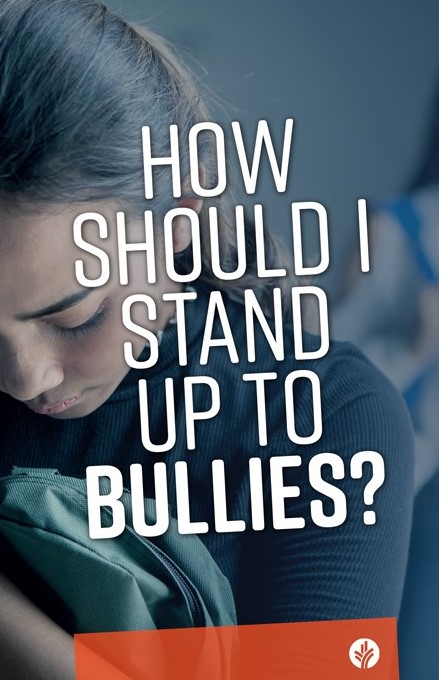
“You should stop hanging out with Anna and Charmaine*.”
I raised my eyebrows at my classmate’s seemingly random remark. “Why? I like them.”
“They’re weird,” she said. “If you’re friends with them, other people won’t want to be friends with you. Just . . . trust me on this.”
My 14-year-old self found that hard to do. After all, Anna and Charmaine seemed perfectly normal to me—they were friendly, had a great sense of humour, and welcomed me to their little clique at the start of the school year, even though I was new to their class.
A few days later, another classmate hinted at the same thing.
I paid no heed to their words, until I began to notice a subtle shift in how my classmates related to me. Once amicable, they now started to shun me, and excluded me from conversations and gatherings. And two boys, Mark and Zayden—notorious for their meanness—began to pick on me, along with Anna and Charmaine, who were already their targets.
How Should I Stand Up to Bullies?
Get our latest family resource!
Our latest resource, How Should I Stand Up to Bullies? is now available.Get a copy
Every month, we roll out a new resource for parents and children. To find out about these offers, why not subscribe to our email updates? Stay informed about the latest resources available, and be the first to get a copy!
Why I Never Told My Parents
Thankfully, I was never physically bullied, and the taunting was never so extreme to have warranted serious intervention. But Mark and Zayden’s jeers, and my classmates’ complicit silence, impacted me profoundly as a teenager searching for acceptance and belonging.
Deep down, I felt a sense of shame from being ostracised and ignored so publicly. Because I didn’t have a clear sense of my identity, the way my peers spoke of and treated me in school became a mirror that reflected my worth to me—or so I thought.
My parents had no inkling of what was happening in school, and it never crossed my mind to tell them. After all, what could they do aside from informing the teacher? In fact, that would have probably been the worst thing they could have done. It would not have stopped the two boys from continuing to bully us—their bullying would’ve just become more inconspicuous.
Because I didn’t have a clear sense of my identity, the way my peers spoke of and treated me in school became a mirror that reflected my worth to me.
My parents probably chalked up my sullenness and withdrawal to puberty and teenage hormones.
So, for the remainder of my time in secondary school, I kept my head low, gritted my teeth, and tried my best to be invisible.
If I Could Parent My Teen Self . . .
It’s been over 15 years since I was bullied, and although much has changed since then, I still look back at this period of my life with a shudder.
And now that I’m a mother myself, I wonder: What would I do differently if my child were to be bullied? Would I inform his teacher? What if he didn’t want that? What if he was being physically bullied?
Honestly, these are tricky questions—whether or not to report it to the school, whether to encourage my son to speak up or stay silent, and whether to confront the bully and his (or her) parents myself. It would depend on the situation, how old my son is, his own feelings, how serious the bullying is, and so on.
Understanding my identity in Christ, and who God is, would have given me a stronger anchor as I tried to sort out my feelings and cope with the bullying.
What I do know for certain, however, is that my teen self would not have wanted my parents to overreact. The last thing I would have liked to see was them storming off to call the school or to harangue the bullies.
Neither would I have wanted them to underreact, and minimise or downplay what was going on (“just ignore it”, “it’s just a phase”, “as long as nobody hit you, it’s not really bullying”).
In hindsight, perhaps what might have helped me was to know the Word of God better. Understanding my identity in Christ, and who God is, would have given me a stronger anchor as I tried to sort out my feelings and cope with the bullying.
God’s Protection for the Bullied
The Bible says a great deal about bullying—directed at both the bullies as well as those who are being bullied.
Our God is a righteous God who sees and knows every act of bullying—every unkind word, every act of exclusion, every push and shove. And He will execute divine judgment on perpetrators, on behalf of their victims who cry out to Him.
As Psalm 34:15–16 promises: “The eyes of the LORD are on the righteous, and his ears are attentive to their cry; but the face of the LORD is against those who do evil, to blot out their name from the earth.”
As a teen, knowing this righteous and protective nature of God would have probably given me some measure of comfort and strength to do what is right when facing my bullies each day.
What comfort it might have given to my 14-year-old self, to know that God’s very own eyes were on me, and His ears attuned to my cries throughout the time I was being bullied! And to be assured of God’s promise that He will avenge those who are bullied, in His sovereign will and perfect timing.
Likewise, in Romans 12:17–19, Paul exhorts us:
“Do not repay anyone evil for evil.
Be careful to do what is right
in the eyes of everyone.
If it is possible, as far as it depends on you,
live at peace with everyone.
Do not take revenge, my dear friends,
but leave room for God’s wrath,
for it is written: ‘It is mine to avenge;
I will repay,’ says the Lord.”
As a teen, knowing this righteous and protective nature of God would have probably given me some measure of comfort and strength to do what is right when facing my bullies each day. And if my son were to need comfort one day, perhaps this is one of the first truths I will share with him.
God’s Assurance for His Children
Another truth that I believe will help my child (or any young person) is knowing his identity in Christ. This will give him a stable, secure, and unshakable foundation as he figures out how to relate to any future bullies.
I pray that my son will come to know that no matter what a bully says or does, he is deeply loved—by His Creator and Father, and by his earthly parents.
I love the description in Ephesians 1:4–6 on who we are in Christ, for its assuring truth:
“[God] chose us in [Christ] before the creation
of the world to be holy and blameless
in his sight. In love he predestined us
for adoption to sonship through Jesus Christ,
in accordance with his pleasure and will
to the praise of his glorious grace,
which he has freely given us in the One he loves.”
This passage reminds us that because of what Christ has done to reconcile us to God, we can draw near to Him as His children, and call Him our heavenly Father. And because God is for us, nothing—not even bullies—can separate us from His love (Romans 8:31–39).
I wish that my 14-year-old self had known this. And as a parent today, I pray that my son will come to know that no matter what a bully says or does, he is deeply loved—by His Creator and Father, and by his earthly parents.
Bullies Need the Gospel, Too
At the same time, I hope that my child will understand that the gospel isn’t just for him, but for bullies, too.
All of us are sinners, and so all of us—whether bullies or those bullied—are in need of God’s forgiveness and atonement through Christ.
As Romans 3:10, 23–24 says:
“There is no one righteous,
not even one . . .
all have sinned and fall short
of the glory of God, and all are
justified freely by his grace
through the redemption
that came by Christ Jesus.”
As my son grows up, I pray that I can impart to him this gospel truth: that all of us do bad things because of the sin in our hearts, and we all need the forgiveness that only Christ can give.
All of us are sinners, and so all of us—whether bullies or those bullied—are in need of God’s forgiveness and atonement through Christ.
As a teen, I didn’t have this biblical lens to make sense of why my bullies did what they did. I never thought about how their actions might have been influenced by the sin in their hearts, or perhaps the sin happening in their homes.
Perhaps if I did, I would have had more compassion for them—or, at least, I would have understood that they needed Jesus as much as I did. And, perhaps, I might even have been led to pray not just for justice to be done, but for their repentance and salvation, as Jesus commands us to in Matthew 5:44–45: “I tell you, love your enemies and pray for those who persecute you, that you may be children of your Father in heaven.”
Fully Known, Truly Loved
As my child grows up and starts going to school, this is what I plan to teach and remind him: that God sees and avenges wrongdoing, that He loves and cares for him deeply, and that He freely offers both him and bullies salvation at the foot of the cross.
Of course, knowing all this will not fully protect or insulate my son from bullies. But, as I seek to raise him up in the Lord’s ways and wisdom, I pray that he will come to experience the fullness of God’s love reflected in ours, and that this love will be what strengthens him, come what may.
American theologian Timothy Keller sums this up well:
“To be loved but not known is comforting but superficial. To be known and not loved is our greatest fear. But to be fully known and truly loved is, well, a lot like being loved by God. It is what we need more than anything. It liberates us from pretense, humbles us out of our self-righteousness, and fortifies us for any difficulty life can throw at us.”
*All names have been changed for privacy.




